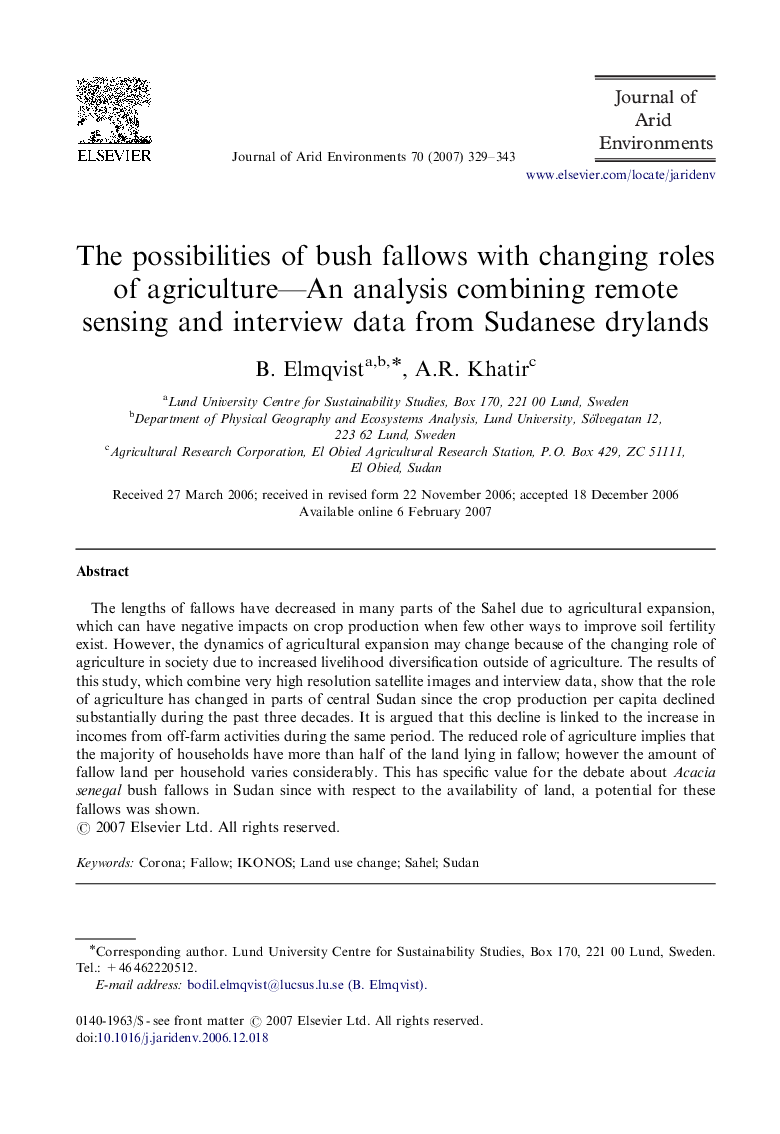| Article ID | Journal | Published Year | Pages | File Type |
|---|---|---|---|---|
| 4394500 | Journal of Arid Environments | 2007 | 15 Pages |
Abstract
The lengths of fallows have decreased in many parts of the Sahel due to agricultural expansion, which can have negative impacts on crop production when few other ways to improve soil fertility exist. However, the dynamics of agricultural expansion may change because of the changing role of agriculture in society due to increased livelihood diversification outside of agriculture. The results of this study, which combine very high resolution satellite images and interview data, show that the role of agriculture has changed in parts of central Sudan since the crop production per capita declined substantially during the past three decades. It is argued that this decline is linked to the increase in incomes from off-farm activities during the same period. The reduced role of agriculture implies that the majority of households have more than half of the land lying in fallow; however the amount of fallow land per household varies considerably. This has specific value for the debate about Acacia senegal bush fallows in Sudan since with respect to the availability of land, a potential for these fallows was shown.
Related Topics
Physical Sciences and Engineering
Earth and Planetary Sciences
Earth-Surface Processes
Authors
B. Elmqvist, A.R. Khatir,
